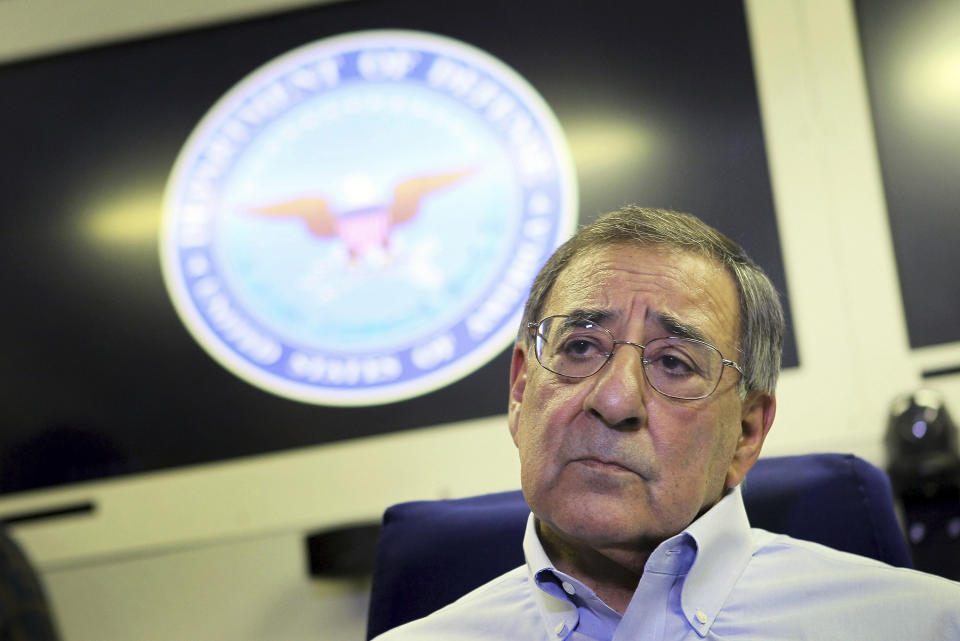Panetta seeks to boost support for Kyrgyzstan base
BISHKEK, Kyrgyzstan (AP) — U.S. Defense Secretary Leon Panetta met with Kyrgyzstan's leaders to stress that America needs the continued use of the U.S. air base there beyond the end of its contract in 2014, largely as a transit center to bring troops home from Afghanistan.
A senior U.S. official traveling with Panetta to Kyrgyzstan said the U.S. believes there may be some "wiggle room" for additional negotiations for a longer term contract.
The official said the defense chief on Tuesday will underscore the importance of the transit center for both countries, for regional security as well as the possible transition to a lucrative commercial hub in the future. The official spoke on condition of anonymity because of the sensitive nature of the discussions.
On Tuesday evening, Panetta met with Taalaybek Omuraliev, Kyrgyzstan's defense minister, and Busurmankul Tabaldiev, the secretary of the Defense Council. During the early part of the meeting, Tabaldiev, a civilian, told Panetta that while Kyrgyzstan "has shown readiness" to support the U.S. and transit center after 2014, he said that after 2014 "there should be no military mission." He said the airport was a civilian, commercial enterprise. His comments echo those of the new president.
Panetta simply offered his thanks for the continued support of the transit center.
Kyrgyzstan President Almaz Atambayev has insisted that the lease will expire in June 2014, and U.S. officials say negotiations on extending the pact have not begun. Atambayev has said the existence of the base leaves the former Soviet Central Asian nation vulnerable to retaliatory strikes over U.S. military action in the region.
The base has been the subject of much contentious dispute between the two countries. But in 2009 the U.S. was able to reach an agreement with the Kyrgyz government for use of the base in return for $60 million a year.
Right now all the U.S. troops moving in and out of Afghanistan travel through what's called the Manas Transit Center. Large numbers of troops are set to come home in 2014 as the war winds down.
In addition, Manas handles a substantial amount of the air-to-air refueling missions for jet fighters during Afghanistan war operations.
The transit of personnel and supplies in and out of Afghanistan has become problematic for the U.S., leaving Kyrgyzstan as one of the few remaining key routes.
In addition to the vital air transport role, Kyrgyzstan is one of just a few ground routes that the U.S. can use to ferry supplies into Afghanistan.
Pakistan shut down its ground supply routes after U.S. airstrikes in November killed a number of Pakistani troops. Since then the U.S. has had to increase its use of ground routes through the central Asian countries. The high-speed rail route through Russia, Kazakhstan and Uzbekistan handles the bulk of the ground supplies, but some trucks go through more mountainous routes in Kyrgyzstan and Tajikistan.
Prior to the 2009 agreement the U.S. was paying a little more than $17 million a year for the use of Manas.
According to Pentagon statistics, there were about 4,800 refueling flights out of Manas for the Afghanistan war in 2011, with at least 24,000 aircraft receiving fuel totaling roughly 300 million pounds. At least 580,000 passengers came through the base last year, largely going in and out of Afghanistan.


